The foreign policy views of all the parties competing in Germany’s coming election are starting to worry its neighbors and allies; whether German voters notice remains to be seen, writes Constanze Stelzenmüller. This post originally appeared in the Financial Times.
President Joe Biden has made it clear that he really, really wants to work with Europe. After the four traumatic years of the Trump presidency, that seems an opportunity not to be missed. Also, Moscow and Beijing are undeterred by U.S. and EU sanctions over the jailing of Russian dissident Alexei Navalny and the mistreatment of Uyghurs in China.
They are dialing up the pressure on Europe with countersanctions, expulsions of diplomats, and thuggish-sounding threats. But in Brussels, EU Commission President Ursula von der Leyen is fighting with European Council President Charles Michel over charges of sexism and a Turkish sofa, instead of getting a grip on a double-dip recession and the pandemic.
British premier Boris Johnson is in trouble over costly wallpaper. French President Emmanuel Macron, up for re-election in 2022, is neck-and-neck in the polls with his far-right rival Marine Le Pen, while retired and current military officers are warning of civil war.
This would seem to be the moment for Germany, as a responsible neighbor, to step up and help out. But Europe’s most powerful economy is going to the polls even sooner than France: on September 26. As the 16-year tenure of Chancellor Angela Merkel comes to a close, the six parties scrambling to rule in the post-Merkel era are somewhat less than focused on goings-on beyond Germany’s borders.
The reason is the fragmentation of Germany’s color-coded party landscape. In current polling, the Greens are fighting for first place with the CDU (black) at about 25 percent, with the Social Democrats (red) far behind at 15 percent, followed by the liberal Free Democrats (yellow) and the Left party (dark red) at around 11 percent each.
The far-right Alternative for Germany is so radical that Germany’s domestic intelligence service wants to place it under observation. No other party will work with it, but it still captures about a tenth of the vote. This increases the likelihood that Germany’s next government will be a three-way coalition, with a kaleidoscope of possible combinations: black-green (or the reverse, with the CDU as junior partner); “Jamaica” (CDU-Greens-liberals); “traffic light” (Greens-SPD-liberals); and finally, “R2G” (SPD-Left-Greens).
This is why the small parties’ ideas suddenly matter. But in terms of foreign and security policy, none of the five presents a fully reassuring image to a neighbor or ally of Germany.
The Left party’s only path to government is R2G, a goal the powerful left wings in the Greens and the SPD have been actively pursuing. But the Left too has radicalized, shedding its once influential east German pragmatists. Its new top duo opposes military engagement abroad of any kind. But it is also apparently clueless about pensions, and that may alienate its base.
The FDP has cabinet-ready experts on finance, digital issues and foreign and security policy — and a liability in Christian Lindner, their leader. The CDU and Greens are still smarting because of his petulant walkout from coalition negotiations in 2017. Last year, he faced a revolt in his own party after supporting the decision of a regional liberal politician to let himself be elected state governor with the AfD’s help.
The SPD’s Olaf Scholz is caught in a double bind. As Merkel’s finance minister, the opposition accuses him of oversight failures in a spate of financial scandals. As candidate for chancellor, he has seen the SPD leadership wrench the party to the left with anti-nuclear slogans reminiscent of the 1980s. Fritz Felgentreu, one of several seasoned legislators to resign in protest, calls his party’s security policy a “smouldering fire.”
Armin Laschet, the CDU candidate, has come under fire for sounding soft on Syria, Russia, and China. Yet his real problems are corruption scandals and circling party frenemies. His party may be dealt another blow in next month’s state elections in Saxony-Anhalt, where some polls have the AfD in close pursuit.
All this does much to explain the rise of the Greens and Annalena Baerbock, their laser-focused candidate. Her criticism of China, the Kremlin, and the Nord Stream 2 pipeline project is music to Washington’s ears. Yet the party’s feisty base has had ferocious fights over defense spending and nuclear deterrence. Its reliability as a partner is by no means guaranteed.
Of course, elections are generally not fought, or won, on foreign policy. But German voters would do well to remember that their country’s wealth and power depends on the stability and security of its neighborhood. Maybe it is time to pay attention, and get a little worried. Its neighbors and allies already are.
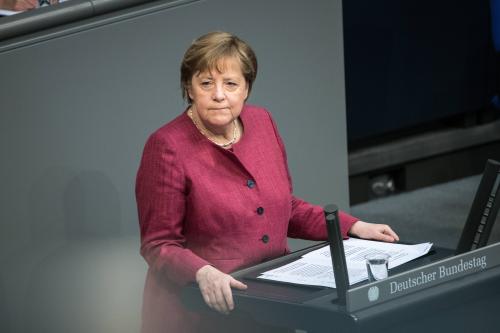
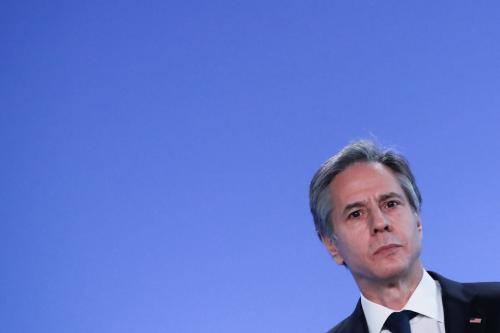
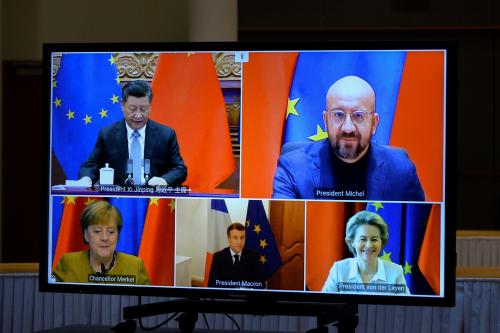

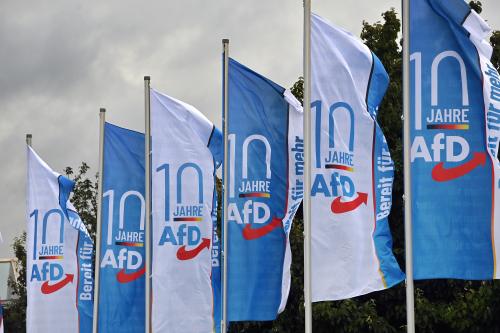
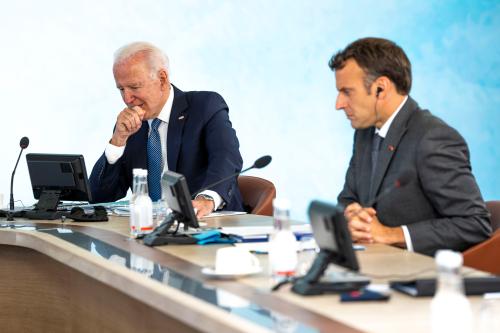
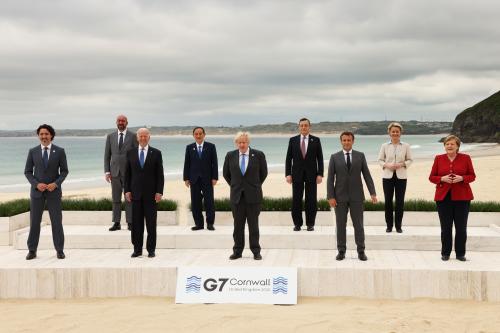
Commentary
Hello, Berlin? Germany’s future raises foreign policy concerns for allies
May 4, 2021